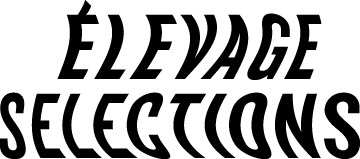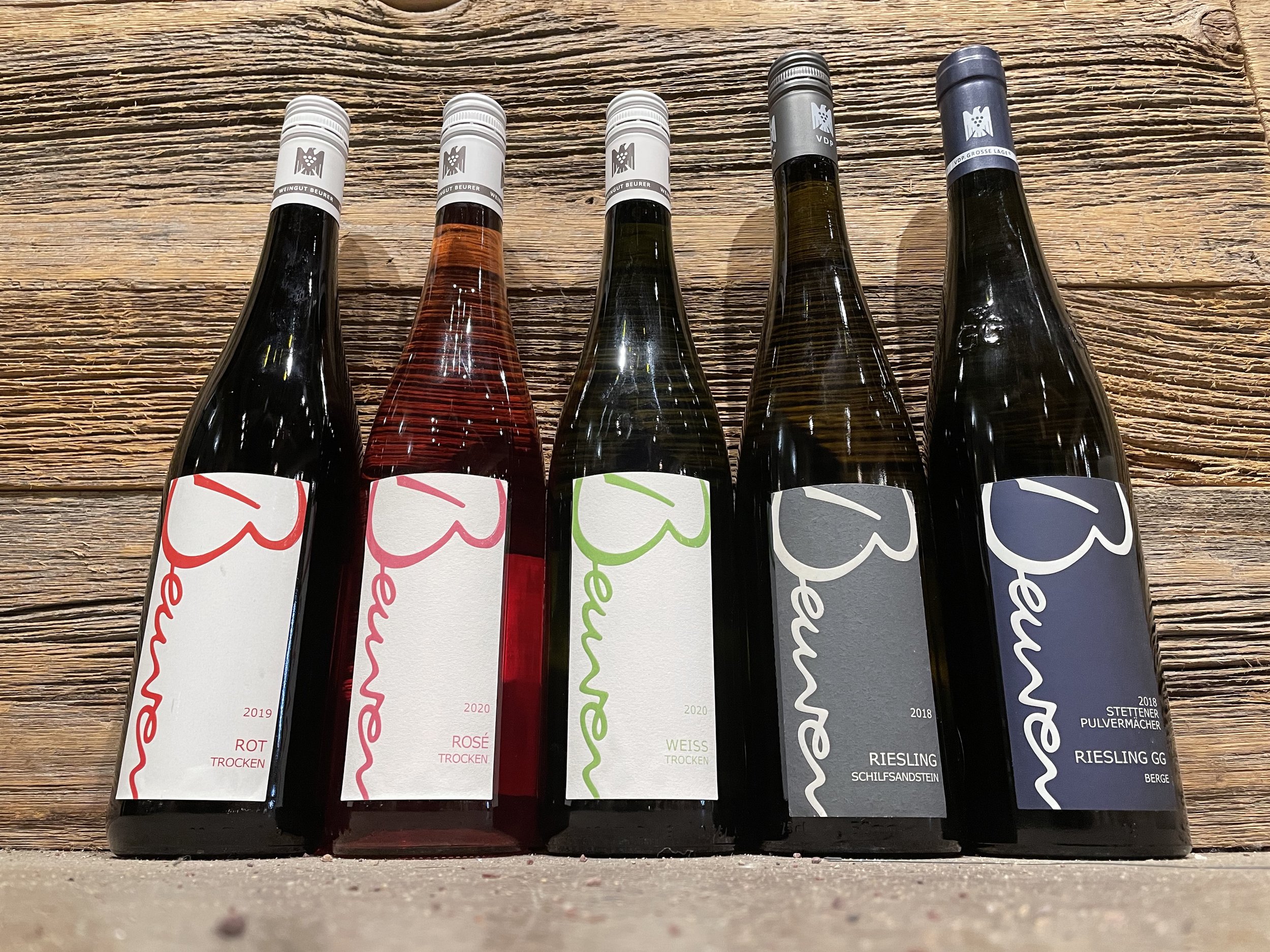Weingut Beurer,
Württemberg, Germany
Jochen Beurer's family has been making and farming wine in Kerner, just outside Stuttgart, for generations. In the beginning, wine was mostly sent to the local coop, which his father was in charge of, but in 1997, the former European BMX champion, Jochen and his family set out on their own. Jochen studied at Weinsberg, Württemberg’s top oenological school. From there he headed to Trentino, to stage with natural wine icon Elisabetta Foradori. Under Elisabetta, Jochen's technical approach was transformed into the more holistic view he takes today.
For the first two years, the winery literally was a garage. As the family committed more and more of their own vineyards to making their own wine they were able to build their own winery. Over many years of learning and experimentation they found the approach they take today. Organic farming began in 2003 with biodynamic practices introduced slowly. They were Demeter certified in 2012 and Jochen still sprays his biodynamic preparations on his BMX bike sometimes.
In 2001 Jochen created an organization for quality-focused, young growers to exchange ideas. Junges Schwaben (Young Swabians) now includes more than 24 local wine growers. Swabia is a cultural, historic and linguistic region in southwestern Germany. The historic and modern concepts of Swabia are different and pretty confusing, but Swabia today is considered to include parts of both Bavaria and Baden-Württemberg. Swabians speak Swabian German and have a distinct culture of their own. Though Swabia is not a wine region, Beurer's American importer Selection Massale have brought it to fame in the world of wine. It is important to note that the area of Swabia, of Württemberg that the Beurer's are in is distinct from other German winegrowing regions though.
One of Jochen’s other projects is his museum vineyard, which sets out to preserve regionally endangered medieval grape cultivars. It contains many near extinct varieties like Heunisch, Räuschling, Veltliner Rosa, Affentaler and many others. The project is a wide-ranging communal and collaborative effort, as well as a showcase for organic viticulture.
Riesling makes up 60% of the estate and like many wineries in Germany is Jochen's main focus. His Riesling wines come from vineyards in the Stettener Pulvermacher, a huge, curving (from SE-SSW facing) block of vineyards that vary in their elevation from around 280-360m ASL. These vineyards are extremely steep and are worked primarily by horse. Depending on the height of the slope, erosion has exposed different aspects of the limestone, sandstones and Keuper that these hills are made from.
Jochen picks extremely late, in numerous successive tries and vineyards are extremely steep. The wines are fermented with natural yeasts (including full malo) and move very slowly. Wines are bottled only when they are ready, not according to any predetermined schedule and sometimes elevage lasts for years. Winemaking is done in a mixture of foudres, barrels and stainless steel, in some cases he works with skin contact for the whites. Lees play a critical role in their aging.
Jochen's wines are organized as in Burgundy. The village wines are his white label marked as "Trocken" (meaning dry, as all the wines are). The premier cru vineyards are named after the soil types (Schilfsandstein and Kieselsandstein) and the Grand Crus are the VDP GG wines.
Riesling Trocken:
From a mixture of parcels and younger vines from the same variety of soils that go into the single vineyards wines. Mineral and crunchy, Jochen calls this "breakfast Riesling". Direct pressed, aged in barrels and Foudre.
Weiss Trocken:
Müller-Thurgau, Silvaner and Weissburgunder from a mixture of parcels and soils. A broader, more savory wine than the Riesling. Direct pressed, aged in barrels and Foudre.
Rot Trocken:
Spätburgunder, Cabernet Dorio, Dornfelder and Portugieser. Destemmed, short maceration, aging in barrel. Deep and intense in its youth but this wines ages shockingly well and is excellent with time. 80% of wine production in Württemberg is red, Jochen is an outlier in this by focussing more on whites.
Schilfsandstein:
35 year old south facing vines, at 310-340m, on soils formed out of the remains of the reed beds on the floor of an ancient sea: crumbly, alkaline and laden with quartz and other mineral deposits. Salty, mineral and zesty. Oyster wine. Aged in Foudre.
Kieselsandstein:
35 years old south facing vines at around 350-360m. These are, geologically younger soils, rich in minerals, with lime and sandstones rich in mica. This wine is richer than the Schilf, yet still fine, detailed and rich in minerality. Aged in Foudre.
Riesling Grosse Gewachs:
In 2013, Jochen was admitted to the VDP, a grower’s organization that comprises many of Germany’s best producers (along with many complete duds). This meant that he had to reorganize the way he names his wines in order to fit in the VDP’s practices, which are based on some ridiculous ideas about how to make wine easier to understand. This meant that his best wine, made from a parcel of his oldest vines on Kieselsandstein located in the Stettener Pulvermächer vineyard (which was previously called “Riesling Junges Schwaben [Young Swabians]),” is now called “Stettener Pulvermächer Riesling Grosse Gewachs.” Blerg. Amazingly, this is a skin contact wine.. Aged in Foudre.
Retail
Ellement Wines & Spirits
Boutique del Vino
Kenaston Wine Market
Winehouse
De Lucas
Calabria Market

